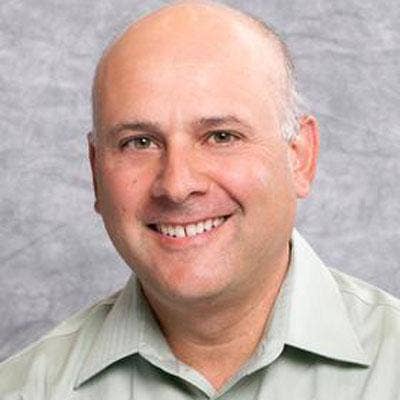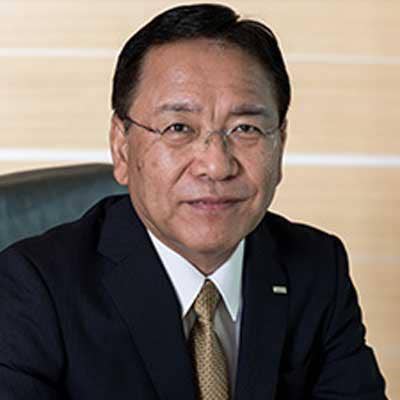The 20 Coolest Cloud Infrastructure Vendors Of The 2017 Cloud 100

Coolest Cloud Infrastructure Vendors For 2017
The cloud infrastructure services industry saw another exciting and volatile year in 2016, with a few more mega-providers withdrawing their wares amid brutal competition and share consolidating among a handful of hyper-scale players. Four companies -- Amazon, Microsoft, Google and IBM -- now take in more than half the world's Infrastructure-as-a-Service revenue, and they're growing faster than their smaller competitors.
Despite market exits from name-brand vendors like Hewlett Packard Enterprise and Cisco Systems, a number of providers are still looking to survive the upheaval and take advantage of the overall market's massive growth. To succeed, they'll need to establish global presence and the ability to fund major investments in their platforms while carving out legitimate niches with the services they offer.
Check out the rest of The 100 Coolest Cloud Computing Vendors Of 2017.

Amazon Web Services
Andy Jassy
Headquarters: Seattle
Amazon isn't ceding an inch in the ultra-competitive IaaS market, maintaining its celebrated pace of innovation and continuing to grow revenue faster than the industry as a whole. The public cloud leader added hundreds of features to its public cloud last year and oversaw a massive global buildout of its facilities.

AT&T
Randall Stephenson, CEO
Headquarters: Dallas
While it's been a tough ride for telecoms in the cloud space, AT&T continues to leverage its networking assets to remain relevant in delivering a variety of cloud services and facilitating hybrid deployments. The telecom recently opened NetBond, its secure offering for connecting to third-party clouds via virtual private network, to its channel.

CenturyLink
Glen Post, CEO
Headquarters: Monroe, La.
The telecom sold off its data centers in 2016, but continued delivering the cloud offerings hosted in those facilities with little apparent disruption. CenturyLink's acquisition of Level 3 Communications, partly funded by the data center deal, added networking muscle. Earlier in the year, CenturyLink debuted Runner, a multicloud automation and orchestration service.

Concerto Cloud Services
Tony DiBenedetto, CEO
Headquarters: Tampa, Fla.
This fully managed provider specializes in hosting mission-critical business applications across private, public and hybrid cloud environments. Concerto delivers storage offerings or complete virtual infrastructure complemented by a high level of access to its cloud experts. The provider looks to simplify integrations and management through an application-centric approach.

DigitalOcean
Ben Uretsky, CEO
Headquarters: New York
This startup provider has focused on developing its niche as an Infrastructure-as-a-Service offering geared to the needs of developers, not enterprises. That translates to a streamlined selection of options and features intended to reduce friction in the provisioning process, as well as a bare-bones pricing model.

Egenera
Pete Manca, CEO
Headquarters: Boxborough, Mass
Originally a developer of cloud management software, Egenera launched its Xterity public cloud as a wholesale service for resellers in 2015, then ramped up its efforts last year in building a channel. The provider has focused on recruiting smaller managed service providers with vertical expertise.

ElasticHosts
Richard Davies, CEO
Headquarters: London
This global cloud services provider focuses on offering virtual servers that are easy to provision and can automatically scale their capacity to match usage, helping customers avoid unnecessary costs. ElasticHosts’ public cloud, which can be white-labeled by partners, also features a flexible container service designed to accommodate shifting workloads.

Evolve IP
Thomas Gravina, CEO
Headquarters: Wayne, Pa.
Evolve IP specializes in hosting customer applications on infrastructure designed to be compliant for specific industry verticals. Last year, the company rapidly boosted those capabilities by acquiring Xtium, a neighboring cloud provider with a complementary business serving customers in highly regulated industries.

Sundar Pichai, CEO
Headquarters: Mountain View, Calif.
It was a banner year for Google's cloud under the leadership of Diane Greene, and the internet giant seized on that momentum by rebranding the business division and shifting focus down the stack to its virtual infrastructure services. Google is setting its sights on frontrunners AWS and Microsoft Azure with a focus on data, analytics and machine learning.

Hostway
Emil Sayegh, CEO
Headquarters: Chicago
This cloud and dedicated infrastructure provider with a stack built on Microsoft technologies looks to facilitate hybrid deployments connecting cloud and on-premise networks. The provider's private cloud services deliver virtualized environments that have the predictability and security of dedicated resources.

Iland
Scott Sparvero, CEO
Headquarters: Houston
This hosting provider founded in 1995 offers cloud infrastructure services that strongly emphasize business continuity and disaster recovery capabilities. The company offers virtual servers built on the VMware technology stack along with a console designed to ease management and control costs.

Internap
Michael Ruffolo, CEO
Headquarters: Atlanta
Internap was a pioneer in deploying OpenStack technology to power a public cloud service and offer developers access to native OpenStack APIs. The provider's AgileCloud is geared to support large workloads that require highly performance infrastructure that easily integrates with non-virtualized environments.

Joyent (Samsung)
Scott Hammond, CEO
Headquarters: San Francisco
Joyent pioneered several public cloud technologies and hosted some internet superstars like Twitter in their early days. The provider was an early advocate of Linux containers and one of the first clouds to introduce a Docker-based service. Under the umbrella of Samsung, Joyent gains in its Korean parent company its largest customer while maintaining its independence.

Microsoft
Satya Nadella, CEO
Headquarters: Redmond, Wash.
Azure continues growing its capabilities and its user base by leaps and bounds, looking to challenge industry kingpin Amazon Web Services. Microsoft's cloud more than doubled its revenue once again in 2016, and improved its margins to yield even greater profitability. Azure's unique architecture is designed to integrate with Microsoft's larger portfolio of cloud services.

NTT Communications
Tetsuya Shoji , CEO
Headquarters: Tokyo
The Japanese telecom giant unveiled last year its revamped Enterprise Cloud, a product redesigned to support hybrid environments and offer improved vendor interoperability and advanced networking capabilities. NTT's cloud adopts OpenStack for its infrastructure layer, and Cloud Foundry to deliver Platform-as-a-Service capabilities.

Oracle
Safra Catz, Murk Hurd, Co-CEOs
Headquarters: Redwood City, Calif.
The software powerhouse was a late entrant into the cloud infrastructure market, but founder and CTO Larry Ellison is setting Oracle's sights on the industry leaders. Oracle's substantial on-premise customer base, database expertise, and financial and technological resources position the company to shake up the industry. Oracle Cloud is looking to differentiate itself with bare-metal compute capabilities.

ProfitBricks
Achim Weiss, CEO
Headquarters: Cambridge, Mass.
ProfitBricks thrives on boldly challenging the big boys, making waves in 2015 with a guarantee to beat the industry leaders in price for performance. The German-American IaaS provider has since partnered with startup Pax8, which now has exclusive distribution rights for its cloud infrastructure in the U.S.

SingleHop
Zak Boca, CEO
Headquarters: Chicago
SingleHop has focused on building a cloud that supports modern DevOps teams with highly automated infrastructure capabilities. The provider of managed and private cloud services boasts a customer-friendly SLA and delivers a number of specialized tools for extending its automation capabilities to customer devices.

Spectrum
Thomas Rutledge, CEO
Headquarters: Stamford, Conn.
With Charter Communications’ purchase of Time Warner, it picked up the cloud assets of NaviSite, which is now part of the cable giant's Spectrum Enterprise business division. Spectrum offers a full suite of managed cloud products for application, desktop and virtual infrastructure hosting.

Virtustream (Dell)
Rodney Rogers, CEO
Headquarters: Bethesda, Md.
Virtustream had established itself as a respected platform for hosting mission-critical enterprise applications, especially SAP workloads, before its acquisition by EMC in 2015. Now that Dell has completed its blockbuster acquisition of EMC, Virtustream's enterprise services constitute the integrated technology giant's primary Infrastructure-as-a-Service offering.